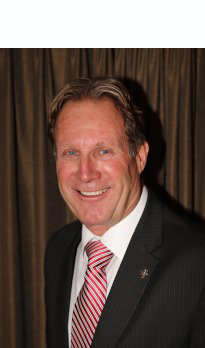
This week was the last week of legislative activity before First Adjournment. Early Sunday morning, the Senate gaveled out for adjournment and will reconvene on April 26th for Veto Session. The Senate voted on numerous conference committee reports, a tax reform bill, and a school finance plan. A conference committee is a small, bipartisan, and bicameral committee that works to smooth out the differences between the House and Senate’s version of a similar bill. Once the conference committee reaches a compromise, the negotiated bill is sent to both the House and Senate for a final vote before advancing to the governor’s desk. When the Senate gavels in on April 26th, we will begin Veto Session and will wrap up any legislative loose ends for the year.
School Finance-the House plan: In the early hours of Sunday morning and after a night of debate, the Senate voted to concur on a school finance plan that the House sent over earlier that day. On Saturday morning, the House narrowly passed a school finance deal on a vote of 63-56. The House placed their original K-12 finance plan into a Senate bill and passed it to the Senate to either concur or non-concur on the deal. The House’s plan would add $500 million to public school funding over the next five years. The funding plan almost doubles the cost of the Senate’s proposed plan that passed earlier that week. Some opponents of the bill believe the plan will make it difficult to earmark other priorities and require a possible tax increase. The Senate voted 21-19 to concur, sending it to Governor Colyer’s desk for him to sign.
Senate School Finance Plan: Sub SB 423 amends the Kansas School Equity and Enhancement Act by making appropriations to the Department of Education relating to school finance. Sub SB 423 would phase in a $275 million increase to education funding. Some major policy provisions included in SB 423 are: Base aid for student excellence will increase from $4,006 to $4,258 in 2018-19, to $4,334 in 2019-20, to $4,412 in 2020-21, to $4,492 in 2021-22, and to $4,574 in 2022-23. The bill will increase special education funding by $24 million in 2018-2019 and expand early childhood funding by increasing state aid for three and four-year-old at risk children by $3,000,000. Allow all students the opportunity to participate in ACT and ACT Work Keys funded by the state. Add $1,760,000 for ABC Early Childhood Program. Provide a pilot program for improvement of mental health services for school districts. Provides that all high school students may take a college class in Comp I at no cost to the student. This bill passed 21-18.
Kansas Tax Reform: Sub SB 2228 amends current law allowing Kansans to receive the anticipated state windfall from federal tax reform. The bill increases the state’s standard income tax deduction and allows Kansans to itemize deductions for state income taxes if they don’t itemize deductions for federal taxation. The bill would accelerate restoration of itemized deductions on state income taxes. Currently, state law allows a 50 percent deduction for medical expenses, mortgage interest, and property taxes in 2018. S Sub 2228 would raise the deduction to 75 percent in tax year 2018 and 100 percent in tax year 2020. The legislation also aims to bring more revenue into the state by taxing international income that is expected to flow back into the United States due to federal tax adjustment. An amendment was placed on the floor to grant a 50 percent state tax credit for donors to exhibit renovations at the Eisenhower Presidential Library in Abilene. The bill will allow Kansans to keep the windfall money instead of the state government. It is estimated that the windfall could be around $137 million in the next fiscal year, $179 million in the subsequent fiscal year, and $187 million the following fiscal year.
Senate Sub for HB 2028 would establish the Kansas Telemedicine Act. The bill would also provide for coverage of speech-language pathologist and audiologist services via telehealth under the Kansas Medical Assistance Program (KMAP) if such services would be covered under KMAP when delivered via in-person contact.
Two other bills of interest to Western Kansas were passed this last week. HB 2583 would create the Noxious Weed Act and repeal current Noxious Weed law. SB 263 creates a program to research the use of industrial hemp.
